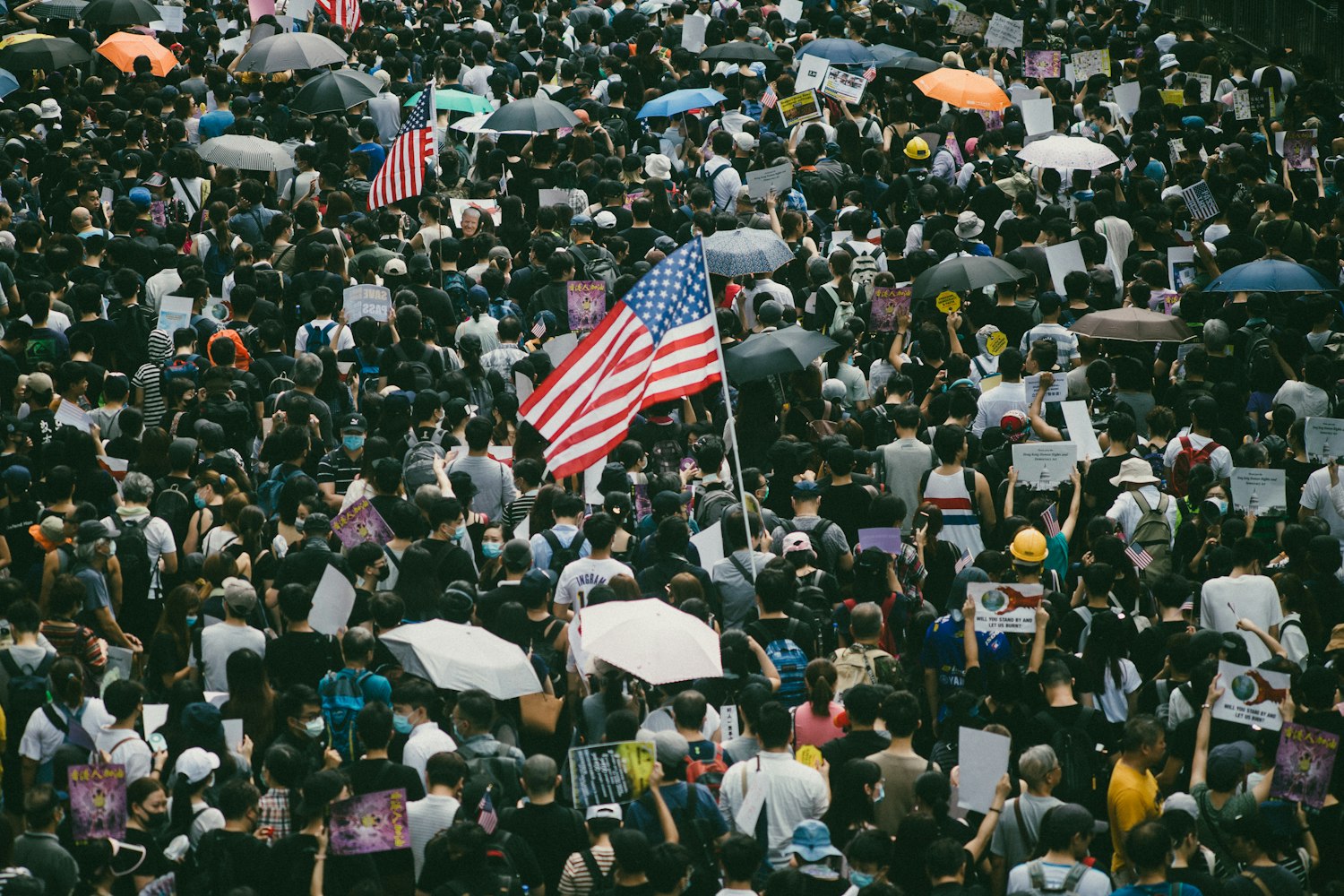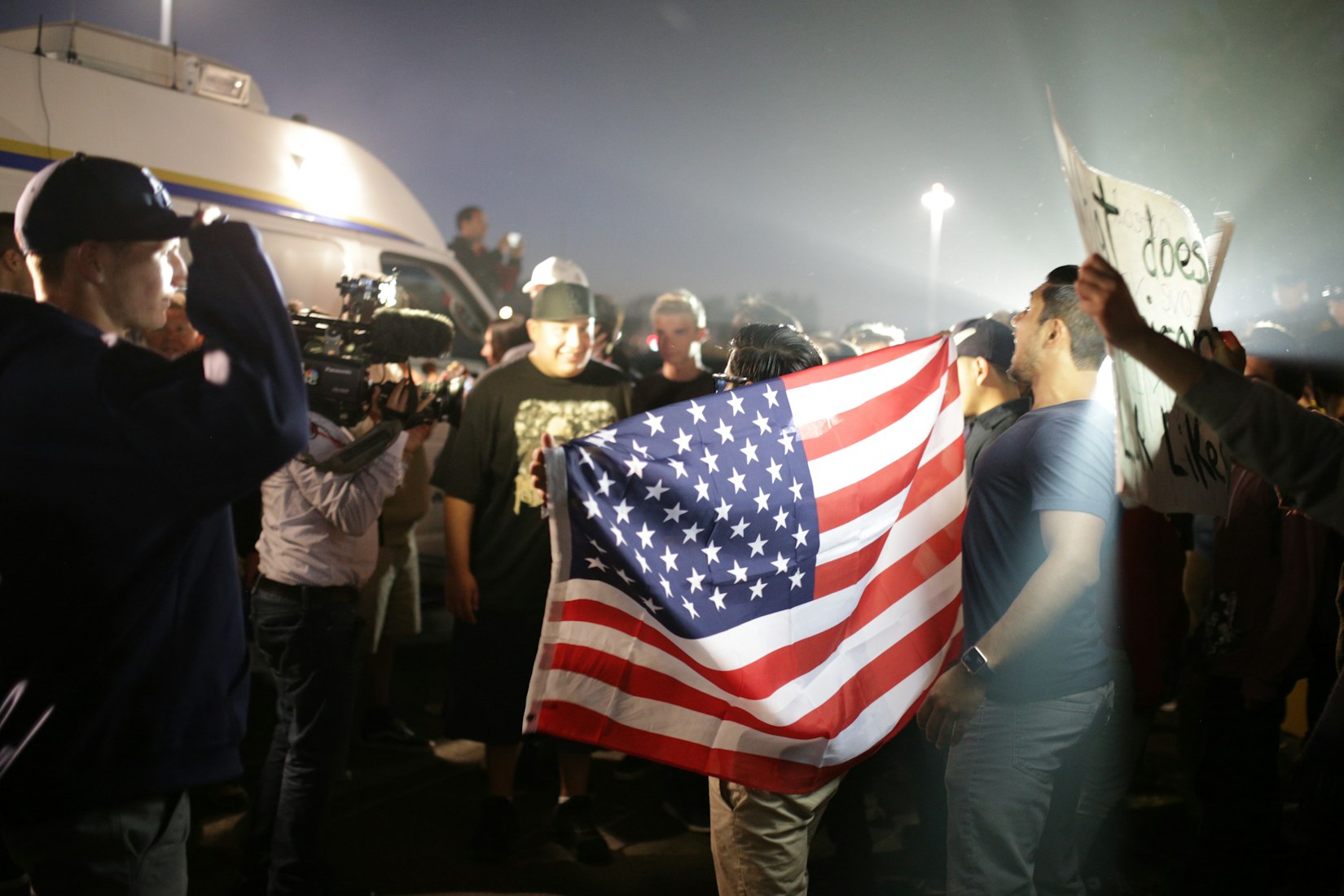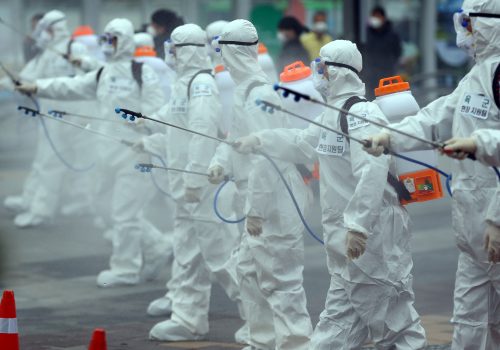What world post COVID-19?: A conversation with Mr. John Raidt
This interview is part of a series conducted by the Atlantic Council’s Foresight, Strategy, and Risks initiative on the potential impacts of COVID-19. The interviews feature insights from the FSR initiative’s Nonresident Senior Fellows, a set of experts drawn from across a wide range of fields. In this interview, Mr. John Raidt, security and public policy expert and practitioner, discusses political dysfunction in the US, the need for democratic renewal, and how the pandemic ties into the contest between democracy and authoritarianism around the world.
How does coronavirus (COVID-19) expose the underlying structural challenges facing the United States and the world?
COVID-19 has made the full spectrum of pre-existing national and global challenges even harder to solve. More than ever, the United States can’t afford to allow internal conflicts and an increasingly fractious and dysfunctional political system impede our ability to tackle future-defining problems. The stakes are too high. History shows that crisis often introduces opportunity. Part of the COVID-19 defeat, recovery, and reset must be systemic reform—making US politics and governance more functional and geared up for the many tasks ahead.
Part of the COVID-19 defeat, recovery, and reset must be systemic reform—making US politics and governance more functional and geared up for the many tasks ahead.
Where do we look for the sources of recovery?
Within democracies, the people are sovereign. Government moves when people demand it. I fear that the public has grown so cynical and accustomed to political infighting and public dysfunction that the public accepts it as an unavoidable reality, failing to demand better of leaders and institutions. I don’t think the political establishment is going to reform itself without public insistence.
When you look at the world amid COVID-19, where is the danger?
There are five big threats that jump to mind. First, of course, is the public health crisis. This is a global fight requiring a global campaign. The United States must be a leader in the war against the pandemic. Rising to this challenge is in the United States’ tradition, character, and national interest. I don’t think the country is doing enough to seize this opportunity. Missing the chance to exercise global leadership in this crisis could hurt us for a long time after COVID-19 is under control.
Second, I think about what impact this crisis will have on the developing world—particularly the countries of Africa. The pressures of the pandemic will create enormous challenges for young democracies and governments across the continent. Many are looking more to the East than the West to help inform their path to the future. My fear is that the United States has not presented a very attractive political model of late. Pandemic-related problems and instability could present new and tougher challenges for democratic governance with adverse implications that will far outlast pandemic.
Third, I look at the US-China relationship. Before COVID-19, the bilateral relationship was strained by tensions on many fronts—including trade, human rights (Uyghurs), Hong Kong, China’s strategy and tactics in exerting greater influence in the Indo-Pacific region and Africa, and China’s use of Huawei as a state tool. Atop all this comes COVID-19 originating from China. The combination of these issues and the pandemic is toxic and threatens to push the world into a new Cold War. Such an outcome is a bad one for the world. Defusing the tension in a principled manner will be one of the most important strategic challenges ahead.
Fourth, I think about how the COVID-19 experience will alter our conception of national and international security. The borderless nature of pandemic demonstrates the need for greater global cooperation against shared threats. The danger is that it could result in less.
Finally, I think about the contest between democracy and autocracy as competing models of governance. Democracy has been on a fifteen-year slide globally. How the pandemic will impact this contest is still an open question. What is clear is that succeeding in a fast-changing world will require democracies to become faster and more agile, increase the ability to agree on priorities, drive strategies, and stick with the strategies through changes in governments and administrations.
I do believe that when the definitive story is writing about the pandemic, including the comparison of how the crisis was handled by autocracies versus democracies, democracies will show well, despite many imperfections and shortfalls, by virtue of comparatively greater transparency, openness, truthfulness, and responsiveness.

Could we explore the long-term advantages that democracies possess? You clearly have some hope that despite all the problems the United States faces, it can pull out of this and emerge in a stronger place.
The principles and values undergirding democracies provide the lasting advantage, as they always have. Autocracy has a clear track record of murder, repression, conquest, and cult of personality. The primacy of human rights, rule of law, and assuring every individual a say in who governs them and how appeals to the human spirit in a way that no autocracy can ever match.
I do believe the United States can emerge stronger and better, but I think fundamental political reform is imperative. We can’t afford to continue letting our intramural battles impede the ability to find consensus and move forward on issues demanding attention. If we aren’t stronger, more unified, and more functional at home, we can’t possibly remain influential globally.
One of the topics on your list of topics to cover is the community’s rights versus individual rights. This tension is a key dynamic within the United States over COVID-19 right now. How do you think about this?
You see this tension in many areas of public policy, including on the issue of vaccination. The debate on this will certainly rage when a COVID-19 vaccine comes available. It will be noisy and messy and most likely political. A segment of society will assert the right not to be forced by the state to be vaccinated; while public health officials will point out that refusing vaccination puts the community’s right to protect public health and safety at risk. I think reconciling this tension requires a greater appreciation that all rights come with responsibilities. Individuals have a responsibility, as well as an interest, in protecting the community of which they are a part; and the community has a responsibility, and an interest, in ensuring its interventions impacting individuals are necessary, appropriate, and safe. Trust in government is at an all-time low which will make this challenge even greater. Finding the sweet spot will require excellent leadership. Overall, though, I don’t believe personal and community rights are mutually exclusive. I believe they are fundamentally codependent, as are rights and responsibilities. We much prefer to talk about the former than the latter. Perhaps it’s time for a bill of responsibilities to accompany our bill of rights.
Sign up for the FSR Newsletter!
Sign up for the Foresight, Strategy and Risks newsletter to remain up to date with our events, publications, and much more! Learn about global risks, technology, emerging security issues, and geopolitics, and discover how current events fit into long-term trends.
Could you talk a bit about US domestic politics and its influence on foreign policy?
As interparty animosity grows and the centrifugal forces of our bitter political conflicts push the parties to their extremes, the sensible center is being disenfranchised. This makes forging policy consensus harder to achieve. A good example is debate over the World Health Organization (WHO). The debate seems to coalesce around either getting out of WHO or doubling down. Neither of those positions are the answer. Unfortunately, with the polarization of our politics, the extremes often control the news cycle and the debate. Obviously, WHO needs reform. That’s where the sensible center is supposed to weigh in. Policy problems today are complex, nuanced, and demand consensus and principled compromise. Our politics breed oversimplification, tribal confrontation, and winner takes all.
Domestic dynamics hurt foreign policy in two ways. First, it’s a lousy way to present ourselves and democracy to the world. Second, the inability to form consensus impedes the formulation of sound and sustainable policy.

How do we have a robust democratic conversation that is rooted in real information? The disinformation landscape reduces trust. Democracy depends upon our ability to talk to one another as citizens based on a shared understanding of reality.
That is a great question. Polls show that people believe the parties disagree on basic facts as well as policy: how dangerous for a system based on self-governance and a well-informed electorate.
There are commercial, political, and technological reasons behind this phenomenon. For instance, the proliferation of cable and Internet channels has created a highly competitive business environment, placing a premium on attracting ears and eyeballs using hyperbole, iffy fact, and sometimes outright fiction. In many cases, media business models are catering to niche audiences seeking view-affirming content laced with opinion. The public is being balkanized into a herd of discrete interest groups making it harder to forge Unum from E Pluribus.
Moreover, I believe the blurring of lines between professional journalism and politics is a very bad trend for the health of American democracy. What can we do about all of this? I think it’s a function of public education that makes people better consumers of information; more responsible political leadership devoted to facts of record, not arguments of convenience; and better services and tools for detecting and calling out misleading information and sources that traffic in erroneous information.

